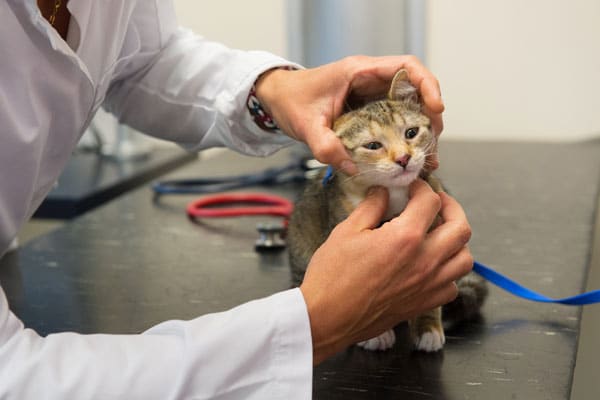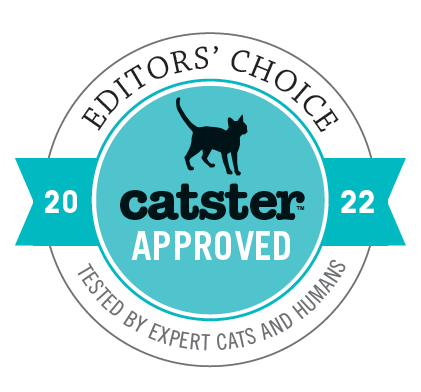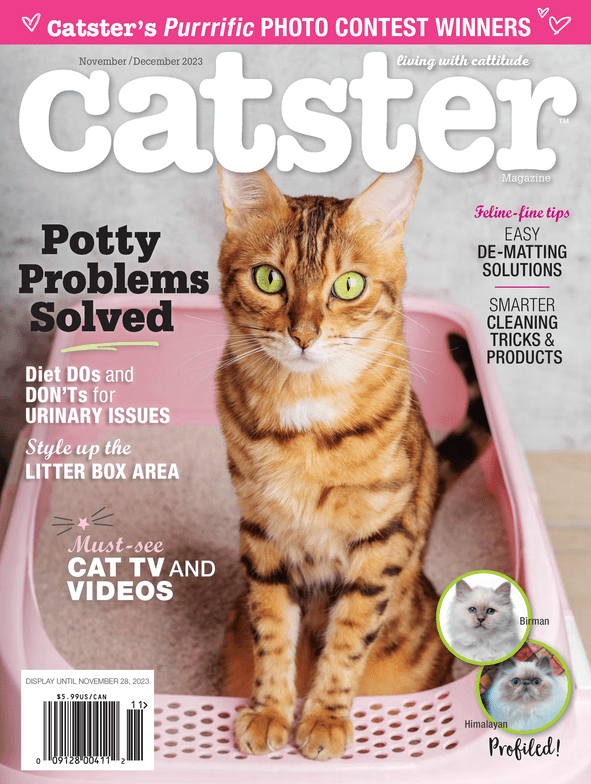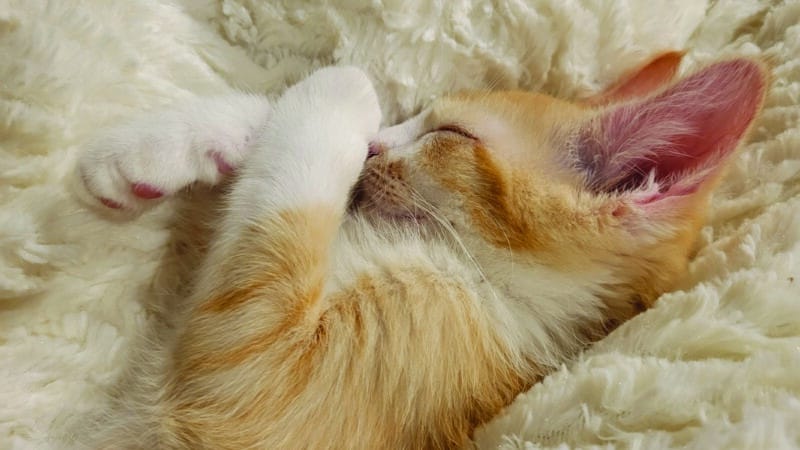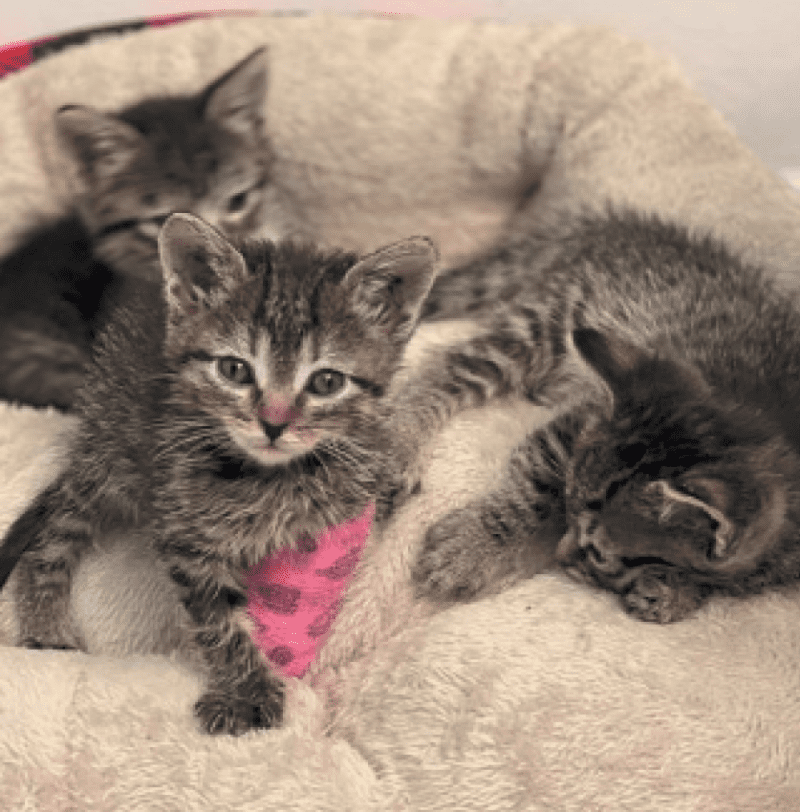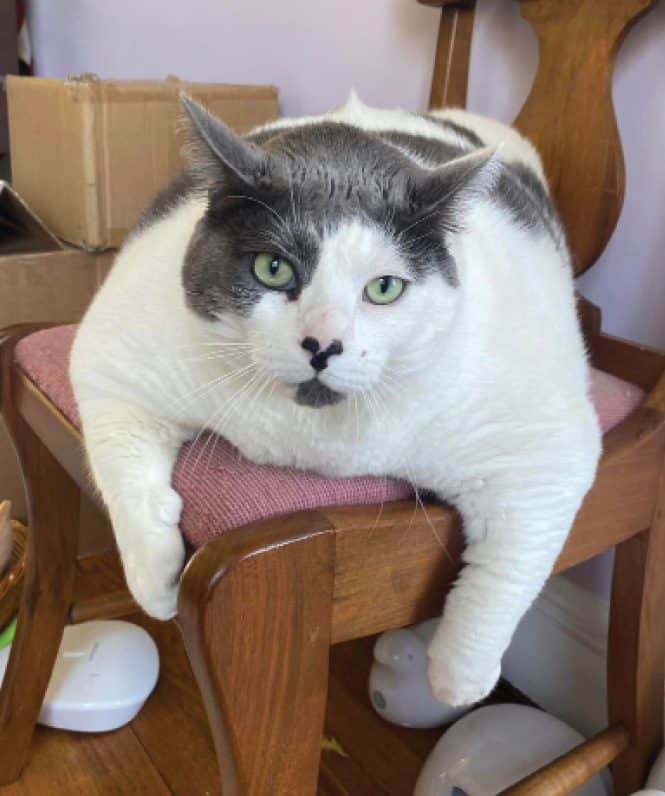I recently received a query from a reader whose friend suffered a sudden tragedy. The friend’s 1-year-old cat jumped down from the couch, gave a startled meow, and dropped dead. I am sorry to say that the above story is not uncommon.Sudden death in cats, even if they’re perfectly cared for, can sometimes happen.
Invariably the shocked and saddened owners want to know what happened. In cases of sudden death in cats, many possible problems can be to blame. However, one problem stands out as by far the most frequent cause of these tragic scenarios: heart disease.
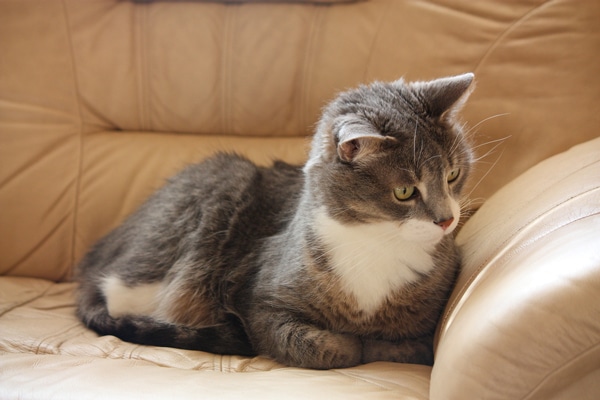
What is heart disease in cats and why does it cause sudden death in cats?
When people think about heart disease, they imagine a lifestyle-related problem. Too many beers, too many sausages, too many cigarettes, too much time in front of the TV, and too little exercise over the course of a lifetime are the recipe for a human heart attack.
Heart disease is different in cats. The most common form of heart disease, cardiomyopathy, is not lifestyle related. That’s a good thing, since cats are natural couch potatoes. Cardiomyopathy is an organic disease that appears to have a strong hereditary component. It is most common in Maine Coons and Persians, but any breed of cat (as well as mixed-breed individuals) can develop the condition.
Cardiomyopathy causes the muscles of the heart to develop improperly, which can lead to compromise of cardiac function. Its effects may first be felt at any age ranging from 6 months upward. Cardiomyopathy often strikes young, seemingly healthy cats. And, shockingly, the first symptom is often sudden death in cats. (Other possible symptoms include breathing difficulties, exercise intolerance, or blood clots passing into the legs.)
How to diagnose heart disease in cats
Cardiomyopathy often cannot be detected during routine physical examinations. Veterinarians listen to cats’ hearts during exams, but the hearts of cats with the disease often sound normal. The cats often will be symptom-free at home.
The most consistent way to diagnose the condition is with diagnostic imaging. Ultrasound of the heart (echocardiogram) is the gold standard. X-rays of the chest will sometimes show an enlarged heart (although, again, the hearts of some cats with cardiomyopathy will look normal on X-rays). There are blood tests to assess for the presence or absence of heart disease, but they are controversial and not yet in common use.

Should every seemingly healthy young cat undergo an echocardiogram? I don’t think so. Although it won’t hurt a cat, I believe that excessive worrying is not good for owners (nor, due to sympathetic stress, for their cats). Cardiomyopathy isn’t uncommon, but it’s not rampant either. Most cats never develop it, and most people probably should worry about something else.
However, echocardiography or other testing should be performed in high-risk cats. This group basically boils down to those with a familial history of cardiomyopathy. If you are concerned, talk to your vet. He or she can discuss your cat’s risk and determine whether diagnostics should be performed.
Finally, you should be aware that although cardiomyopathy is the most common cause of sudden death in cats, it is not the only one. Other possible causes include trauma, exposure to toxins, urinary obstruction, and feline asthma. Owners of cats who suddenly and unexpectedly pass away may want to talk to their vets about an autopsy to determine the cause, especially if related cats also live in the house.

